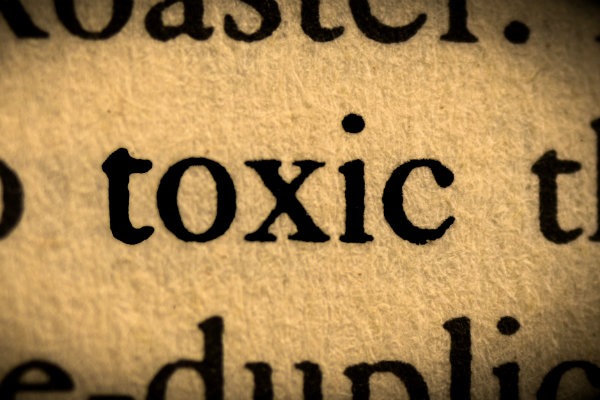
Oxford Dictionaries has chosen “toxic” as its word of 2018.
The English dictionary said searches for the word on its website have increased by 45 per cent in the last year, adding that it was selected for capturing the ethos, mood and preoccupations of 2018.
The dictionary describes the word as “poisonous” but said it has recently developed wider social meanings in light of the #MeToo movement and the increasingly volatile political landscape fostered by the Brexit vote.
Casper Grathwohl, president of Oxford Dictionaries, said that when reviewing the year in language, he repeatedly came across the word “toxic” as “being used to describe an increasing set of conditions” that everyone is experiencing.
“Qualifying everything from the entrenched patriarchy to the constant blare of polarising political rhetoric, ‘toxic’ seems to reflect a growing sense of how extreme, and at times radioactive, we feel aspects of modern life have become,” he said.
But it’s only recently that the word has come to gain this wider meaning.
Traditionally, the word “toxic” has been used to describe harmful chemical substances e.g. toxic waste and toxic gas.
Now, it’s more commonly associated with phrases such as toxic masculinity, which describes how harmful gender stereotypes can adversely affect a man’s behaviour to the extent that it has wider societal consequences.
Toxic sits on a shortlist of words chosen by the dictionary, which includes a number of new terms such as orbiting (“the action of abruptly withdrawing from direct communication with someone while still monitoring their activity on social media”), cakeism (“the belief that it is possible to enjoy both of two desirable but mutually exclusive alternatives at once”) and incel, which is short for “involuntary celibate” and is used to describe an online subculture of people who “typically deem themselves chronically unable to attract romantic or sexual partners.”
Some of the words on the shortlist also appeared on that which was compiled by Collins Dictionary, which selected “single-use” as its definitive word of the year.
Gammon and gaslighting were chosen by both dictionaries as important words of 2018.
The former is used as a derogatory term to reference white, middle-class men and the latter describes a type of manipulation whereby you prompt someone to doubt their own perception of reality.
One phrase that appeared on Oxford’s list, and not Collins’, was “big dick energy”, which became popular in June 2018 after social media users linked it to the actor Pete Davidson as a way of describing his understated confidence.
It has since been used to describe the authoritative presence of a number of famous women, including Rihanna, Serena Williams and Cate Blanchett.













